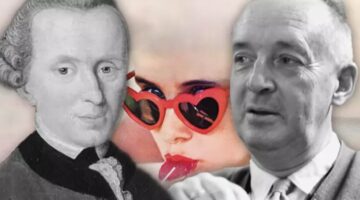Dana Dragunoiu at the IAI:
 Forced into exile in 1917 by the October Revolution, Nabokov had good reasons to champion freedom as passionately and consistently as he did. From his point of view and that of most Russian émigrés, the Bolsheviks substituted the tsarist tyranny with a tyranny of their own. For Nabokov in particular, this was especially painful because his father had been one of the “liberationists” who dedicated his life to transforming Russia into a modern liberal-democratic state. His father’s political activism and his murder in a bungled political assassination by far-right extremists is one of the most poignant chapters of Nabokov’s biography. Nabokov’s philosophically complex account of freedom is a consistent seam throughout his major works – and it has also led to confusion in their popular and critical reception.
Forced into exile in 1917 by the October Revolution, Nabokov had good reasons to champion freedom as passionately and consistently as he did. From his point of view and that of most Russian émigrés, the Bolsheviks substituted the tsarist tyranny with a tyranny of their own. For Nabokov in particular, this was especially painful because his father had been one of the “liberationists” who dedicated his life to transforming Russia into a modern liberal-democratic state. His father’s political activism and his murder in a bungled political assassination by far-right extremists is one of the most poignant chapters of Nabokov’s biography. Nabokov’s philosophically complex account of freedom is a consistent seam throughout his major works – and it has also led to confusion in their popular and critical reception.
More here.
